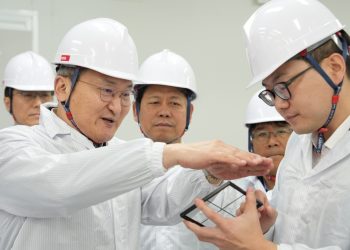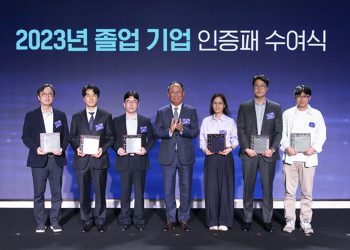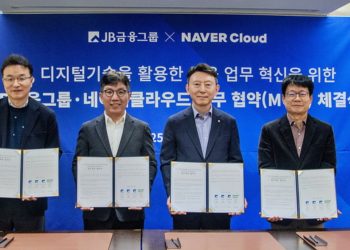South Korea is set to develop advanced artificial intelligence (AI) chips by 2030, designed to perform over 10 trillion operations per second while consuming minimal electricity. The government aims to drive forward research and development (R&D) projects for AI and semiconductor innovations, with a budget of 737.1 billion won ($560 million) for 2024.
The Ministry of Science and ICT has revealed its roadmap, which encompasses developing strategic technologies such as semiconductors, displays, rechargeable batteries, and advanced mobility.
A key aspect of this blueprint involves collaboration between governmental bodies, academic institutions, and prominent technology companies, including Samsung Electronics Co. and SK Hynix Inc. Additionally, the renowned Korea Advanced Institute of Science & Technology (KAIST) and state-run research institutes will be pivotal contributors to the AI semiconductor ecosystem.
A Memorandum of Understanding (MOU) has been established between the government and leading chip manufacturers, laying out a framework for collective efforts to secure cutting-edge advancements in advanced semiconductor packaging.
Achieving a performance benchmark of 10 teraflops per watt would represent a remarkable feat in power efficiency. To put this in perspective, this efficiency level translates to consuming merely one-millionth of the power that AlphaGo utilized during its renowned 2016 match against former professional Go player Lee Sedol.
Beyond its focus on AI chips, South Korea is directing its attention toward the rechargeable battery industry. The government has set its sights on reducing dependencies on rare earth materials through the promotion of sodium-ion batteries, which have the potential to achieve an energy density of 220 watt-hours per kilogram.
To catalyze this shift, the government is diligently working to strengthen the development of high-manganese battery manufacturing technologies among battery companies.
In addition to focusing on AI and semiconductors, South Korea has set its sights on achieving self-reliance in key aspects of chip fabrication processes. The nation aims to secure 100% of the core technologies necessary for ultra-fine chip fabrication processes measuring below 3 nanometers.
To realize this objective, the government actively supports domestic companies in establishing partnerships with renowned semiconductor equipment giants, including Applied Materials Inc., ASML from the Netherlands, and Tokyo Electron Ltd.
The government’s determination was reaffirmed during the third regular meeting of the Special Committee on National Strategic Technology, which the Ministry of Science and ICT chaired.
Read more from KoreaTechToday:
- Samsung Foundry Unveils Five-Year Plan: Accelerates Chip Innovation with Expanded Production
- Semiconductor Ecosystem Fund: South Korea Invests $229.25 Million to Support Chip Industry Growth
- SK Hynix Unveils the Fastest DDR5 Memory Chips in Collaboration with Intel
- Samsung and SK Hynix face uncertainties as China bans the US chipmaker Micron
- Samsung to build memory chip based supercomputers, expects surpassing Taiwan Semiconductor Manufacturing Company







